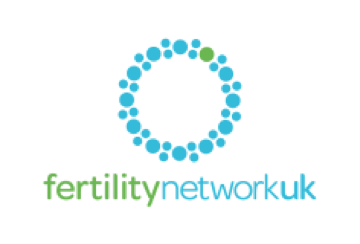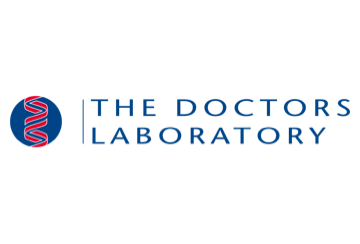Planning a pregnancy: Vitamins & Supplements when trying to conceive
When trying to conceive, it's essential to ensure that your body is adequately nourished to support a healthy pregnancy. While a balanced diet should be the primary source of essential nutrients, when planning a pregnancy, vitamins and supplements when trying to conceive may be beneficial for preconception health.

Vitamins and minerals play crucial roles in reproduction for both men and women. They are essential for overall reproductive health, fertility, and the development of a healthy pregnancy. As with any vitamins and supplements, it is advisable to consult with your GP or fertility consultant before starting any supplementation, especially if you have any underlying health conditions or are taking other medications. Your healthcare provider can provide personalised recommendations for planning a pregnancy with vitamins and supplements when trying to conceive, that suit your individual needs and circumstances.
Here are some commonly recommended Vitamins & Supplements when planning a pregnancy and why they are important in supporting preconception and a healthy pregnancy:
Folic Acid (Folate)
Folic acid is crucial for preventing neural tube defects in the baby. It's recommended that women of childbearing age take 400 to 800 micrograms (mcg) of folic acid daily, ideally starting before conception.
Folic acid is vital for women who are pregnant or trying to conceive because it helps prevent neural tube defects in the developing fetus. It is especially important in the early stages of pregnancy when the neural tube is forming.

Iron
Iron helps prevent anemia, which is common during pregnancy. Adequate iron levels are important for both mother and baby. Iron-rich foods and supplements may be recommended, especially if you have low iron levels.
Iron is essential for both men and women's reproductive health. In women, iron helps prevent anemia, which can affect fertility and increase the risk of complications during pregnancy. In men, iron deficiency can lead to decreased sperm quality.
Calcium
Calcium is essential for bone health and muscle function. It's crucial during pregnancy to support the development of the baby's bones and teeth.
Calcium is not only important for the bone health and muscle function of your developing baby but also includes the muscles of the uterus. Adequate calcium intake supports a healthy pregnancy and may reduce the risk of complications such as preeclampsia.
Vitamin D
Vitamin D helps the body absorb calcium and is important for bone health. Adequate Vitamin D levels are necessary for both mother and baby.
Adequate vitamin D levels are associated with improved fertility in both men and women. For women, it supports hormonal regulation, ovulation, follicular development and implantation. For men, adequate vitamin D levels may help improve sperm count, motility, and overall sperm quality, which are important factors in male fertility. Vitamin D has anti-inflammatory and antioxidant properties, which may help reduce inflammation and oxidative stress in the reproductive organs.
Omega-3 Fatty Acids
Omega-3 fatty acids, particularly DHA (docosahexaenoic acid), are important for fetal brain and eye development. They can be found in fatty fish or taken as supplements.
Omega-3 fatty acids play a role in improving egg quality and sperm health and may improve fertility in both men and women. Omega-3 fatty acids have also been associated with a reduced risk of pregnancy complications, such as preterm birth, preeclampsia, and gestational diabetes..
Iodine
Iodine is important for thyroid function and fetal brain development. It's recommended that women who are pregnant or trying to conceive take a prenatal vitamin that includes iodine.
Iodine is crucial for reproductive health too. Adequate iodine intake is important for both men and women who are trying to conceive. To maintain adequate iodine intake through dietary sources such as iodized salt, seafood, dairy products, and seaweed.

Vitamin B12
Vitamin B12, also known as cobalamin, is important for the formation of red blood cells, DNA and the development of the baby's nervous system. It's found in animal products, so vegetarians and vegans may need to supplement.
Maintaining adequate levels of vitamin B12 is important for both male and female fertility, as it plays roles in ovulation, sperm production, hormone regulation, and the development of a healthy pregnancy. It's important for individuals who are trying to conceive to consume a balanced diet rich in vitamin B12 sources, such as meat, fish, dairy products, eggs, and fortified foods. In cases of deficiency or suboptimal intake, supplementation with vitamin B12 may be recommended.
Coenzyme Q10 (CoQ10)
Coenzyme Q10 (CoQ10) is a naturally occurring compound found in every cell of the body. It plays a key role in the production of energy within cells and serves as a powerful antioxidant. When it comes to fertility and planning a pregnancy, CoQ10 has gained attention for its potential benefits, particularly in improving egg quality in women and sperm quality in men.
Vitamin E
Vitamin E is a fat-soluble antioxidant that may help protect sperm and egg cells from damage caused by free radicals. It may play a role in improving fertility by protecting sperm and egg cells from oxidative stress.
Free radicals can harm reproductive cells, including eggs and sperm, by causing oxidative stress. By neutralizing free radicals, vitamin E helps preserve the integrity of reproductive cells and may improve fertility.
Sperm are vulnerable to oxidative stress due to their high content of polyunsaturated fatty acids. Vitamin E helps maintain the integrity of sperm membranes and DNA, which is important for sperm motility, morphology (shape), and overall quality.
Vitamin E may also play a role in supporting uterine health in women. Adequate levels of vitamin E may help maintain the integrity of the uterine lining, which is essential for embryo implantation and the establishment of pregnancy.

Zinc
Zinc is important for reproductive health and may help improve sperm quality in men.
Zinc is important for male reproductive health, as it is involved in sperm production and testosterone metabolism. In women, zinc deficiency can lead to menstrual irregularities and may affect fertility.
Zinc is also essential for a healthy immune system, which is important for overall health and fertility. Immune dysfunction or chronic inflammation can negatively impact reproductive health and fertility. Adequate zinc levels help support immune function and may contribute to optimal reproductive health.
Magnesium
Magnesium is involved in hundreds of biochemical reactions in the body, including those related to fertility and reproductive health. It helps regulate hormone levels and may improve fertility in both men and women.
While magnesium supplementation may be beneficial for some individuals, it's important to note that excessive magnesium intake can have adverse effects and may cause gastrointestinal symptoms such as diarrhea. It's always best to obtain nutrients from a balanced diet rich in magnesium sources such as leafy green vegetables, nuts, seeds, whole grains, and legumes
In Summary
Overall, maintaining adequate levels of vitamins and minerals through a balanced diet and, if necessary, supplementation, is essential for reproductive health, fertility, and the development of a healthy pregnancy. It's important for both partners to focus on nutrition and overall health when planning a pregnancy and trying to conceive.

Additionally, maintaining a healthy lifestyle, including regular exercise, managing stress, and avoiding harmful substances like alcohol and tobacco, is important for preconception health.
However, it is essential to talk to your healthcare provider before starting any new vitamins and supplements, especially if you have any medical conditions or are taking medications. They can provide personalised recommendations based on your individual needs and health status.
If you wish to discuss dietary supplementation with our Fertility Specialist, Dr Irfana Koita, you can book a FREE Advisory Call or schedule a direct consultation, either in clinic, on video-call or via telephone. If you are in the early stages of planning to start a family, why not take full advantage of Dr Koita’s Prep4Pregnancy Programme, which is scheduled over a three month period to provide you with the best chance of success!
Related Articles:
Optimise your Fertility: Vitamins and Supplements Beneficial for Women and Men.
Introducing
Buy Now Pay Later
Payments in instalments. No credit checks! Quick applications! Select at checkout
Working with






